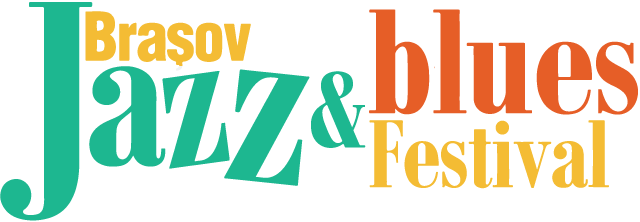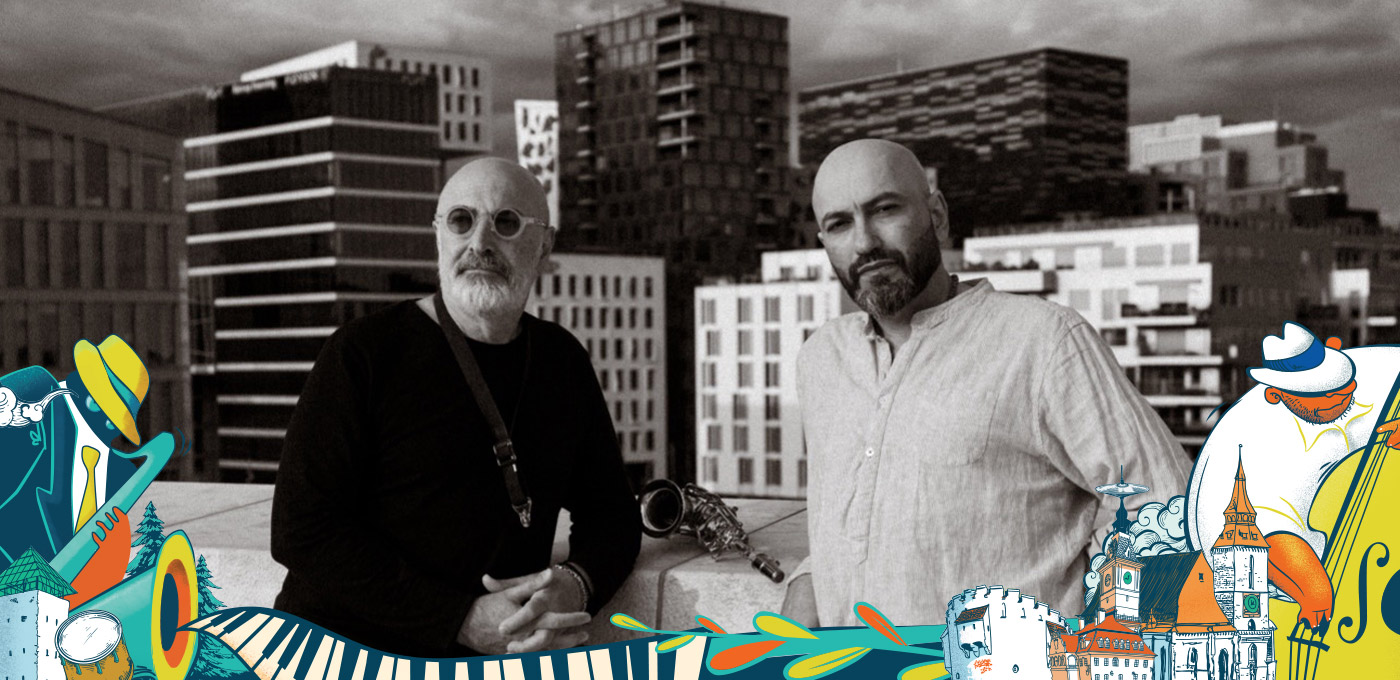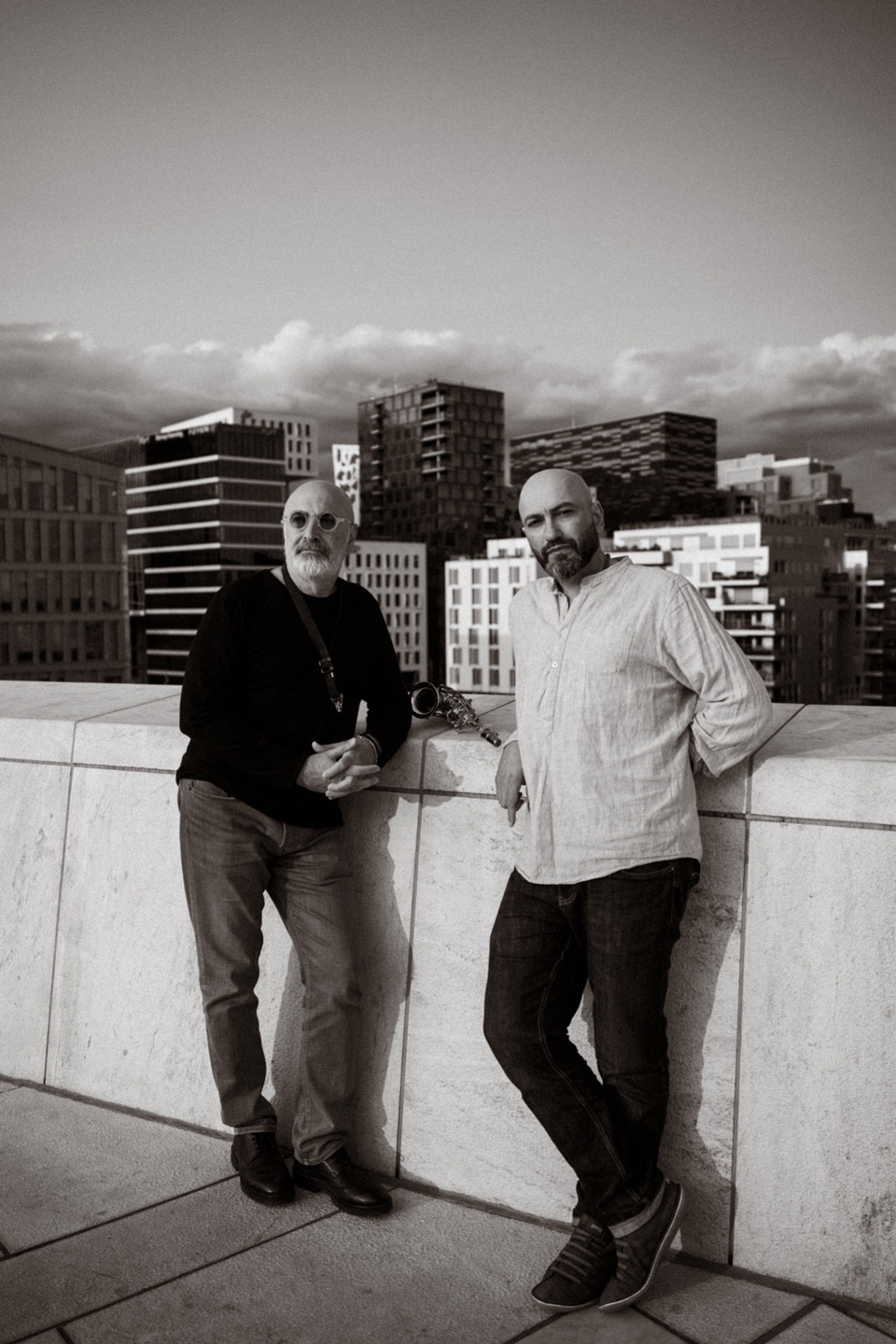Concert organizat în parteneriat cu UCIMR - Uniunea de Creație Interpretativă a Muzicienilor din România
Rain Sultanov – soprano sax
Hikmat Baba-zada – piano, keyboard
Rain Sultanov este un saxofonist de top cu o contribuție majoră la dezvoltarea culturii jazzului în Azerbaidjan. Puțini au reușit să parcurgă un drum artistic atât de tumultuos și interesant, bogat și plin de evenimente muzicale, precum Rain Sultanov. Este o persoană a cărei activitate suscită mereu interesul experților internaționali în muzica de calitate. Muzica lui Rain poartă un mesaj profund și invită la reflecție.
Rain Sultanov are un stil unic de interpretare și o serie neîntreruptă de idei, albume și proiecte noi. Începând din perioada sovietică și până în prezent, a participat la numeroase concerte și festivaluri de jazz din întreaga lume.
Rain Sultanov este un muzician de jazz recunoscut și un exponent important al diferitelor forme muzicale, cu un stil propriu și o multitudine de idei și proiecte, atras irezistibil de lumea misterioasă a viitorului.
Hikmat Baba-zada este un pianist format în muzica clasică, dar care și-a descoperit pasiunea pentru jazz la vârsta de 17 ani. El folosește interpretarea la pian ca o formă de terapie, explorând expresia intuitivă și eliberarea emoțională. Abordarea sa se concentrează mai puțin pe interpretarea tradițională bazată pe înălțimea sunetelor și mai mult pe coregrafia formelor și a mișcării pe claviatură, asemuind-o cu direcționarea unui grup de dansatori.
Rain Sultanov is leading jazz saxophonist who has made a huge contribution to the development of jazz culture in Azerbaijan. Not many were able to walk such a turbulent and interesting creative path, rich and full of musical events, as Rain Sultanov. He is a person whose work is always of interest to the world’s experts of high music. Rain’s music carries a lot of sense and leads one to a deep thought. Rain Aladdin Sultanov was born on April 29, 1965 in Baku, Azerbaijan. After graduating from a music school as a distance student, specializing in clarinet and surprising his teachers with hard work and natural talent, Rain demonstrated his extraordinary ability for the first time. In 1985, Rain Sultanov was awarded at the Republican clarinetists contest.
In 1988, having received an invitation from the master of Azerbaijani vocal arts Rashid Behbudov, he began working at the Azerbaijan Song Theatre. After Behbudov’s in 1990 Rain becomes jazz soloist of the ‘Qaya’ State Jazz Orchestra. After this period of life can be called Rain Sultanov’s emerging professional jazz career. In 1997 he founded the band Syndicate and released his first album ‘Last Moment’.
In 2003, Rain Sultanov published a work of many years, his book ‘Anthology of Jazz in Azerbaijan’. The book featured archival materials collected from all over the world, as well as facts and photographs of those who were somehow associated with jazz in Azerbaijan. The book also contains two Cd’s with the music of past years and the compositions of contemporary musicians. It became the first comprehensive reference material on jazz in Azerbaijan, showing the whole process of historical development of jazz in Baku. Along with scientific research and analysis of the development of jazz, Sultanov did not limit himself in musical activity. A year later, Rain Sultanov became the art director and organizer of the festival, which he named the Baku Jazz Festival. Starting that year, the international festival in Baku has been held annually and is the largest jazz event in the country.
He also possesses his own unique style of performance and an everlasting series of new ideas, albums and projects. Beginning in the Soviet time and to this day, Rain Sultanov has been a participant of a large number of concerts and jazz festivals held worldwide. Rain Sultanov – authoritative jazz musician and leading exponent of different forms of music, with his own style and a plethora of ideas and projects, drawn inexorably to the mysterious world of the future.
Hikmat Baba-zada is a pianist with a background in classical music who discovered a passion for jazz, particularly its improvisational aspect. He uses his piano playing as a form of self-therapy, exploring intuitive expression and emotional release. His approach is less about traditional pitch-based playing and more about the choreography of shapes and movement on the keyboard, likening it to directing a group of dancers.




